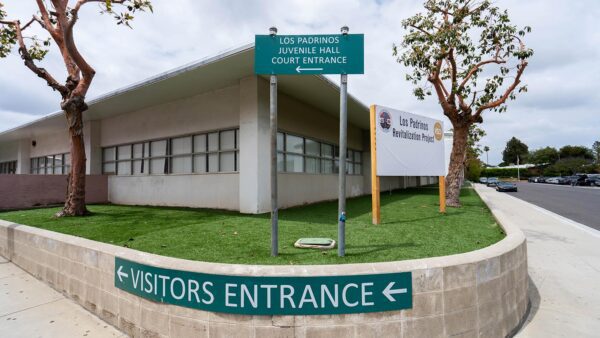The Los Angeles County Board of Supervisors approved final changes Monday to its $43 billion budget for the 2023-24 fiscal year, while acknowledging the spending plan will leave critics of its jail system unhappy as the county tackles major issues such as homelessness and juvenile justice reform.
“After a year of recovery and progress, Los Angeles County is now facing a leaner budget,” Supervisor Hilda Solis said in a statement following the vote. “That means we will largely have to rely on savings from the previous fiscal year for new projects — doing more with less and making our dollars stretch further. Despite this tighter budget, our work must continue.”
During three hours of public testimony Monday, residents largely blasted plans to direct funding to the sheriff’s department, the troubled Probation Department and the jail system. Some in the audience invoked the names of people who have died in sheriff’s custody. They also spoke of Bryan Diaz, an 18-year-old detainee who died of a drug overdose earlier this year at Barry J. Nidorf Juvenile Hall in Sylmar.
Diaz’s death was the most recent black mark on the county’s juvenile justice system, and played a key role in a recent vote by state regulators to declare the Nidorf and Central juvenile halls unfit to house youth offenders.
Among the budgetary changes adopted by the board Monday was the allocation of roughly $118 million to renovate Los Padrinos Juvenile Hall in Downey, where most detainees from Nidorf and Central halls will be relocated.
Roughly $30 million in “Care First Community Investment” dollars were earmarked for efforts to move low-risk and mentally ill people out of the county jails, with additional funds allocated toward provision of mental health services in psychiatric units inside the jails.
The spending plan also included roughly $6.6 million and the addition of 24 nonsworn positions to establish an Office of Constitutional Policing in the sheriff’s department, to “oversee and monitor consent decrees, deputy gang issues, audit and investigations, compliance, risk management and policy development.”
Supervisor Kathryn Barger said in a statement she is “supportive of the funds allocated to Care First Community Investment projects and programs.”
“A total of $88.3 million is included in the approved budget, bringing the county’s cumulative investment in CFCI since 2021 to $676 million,” Barger said. “These funds will continue helping our county build a newly envisioned justice system — one that prioritizes giving individuals the help they need to stay out of jail.”
Supervisors acknowledged during the meeting the county’s historic shortfalls in managing the jails system.
When she unveiled the budget proposal in April, county CEO Fesia Davenport warned of potentially billions of dollars in liabilities faced by the county from lawsuits filed by hundreds of former youth detainees alleging assault and sexual abuse. Those claims expanded dramatically due to a state law that extended the statute of limitations for the filing of such claims.
At that time, Davenport estimated the county could be facing liability ranging from $1.6 billion to $3 billion from more than 3,000 pending claims involving various county facilities.
“With the changes to the budget approved today, we are striking a balanced approach to improving and enhancing services for the public while preparing for future economic uncertainty due to stagnate property and sales tax growth and looming financial responsibility to address decades-old sexual assault cases,” Barger said in a statement. “We must balance these economic realities with our ongoing efforts to enhance services and programs for L.A. County residents who depend on us for their safety and well-being.”







